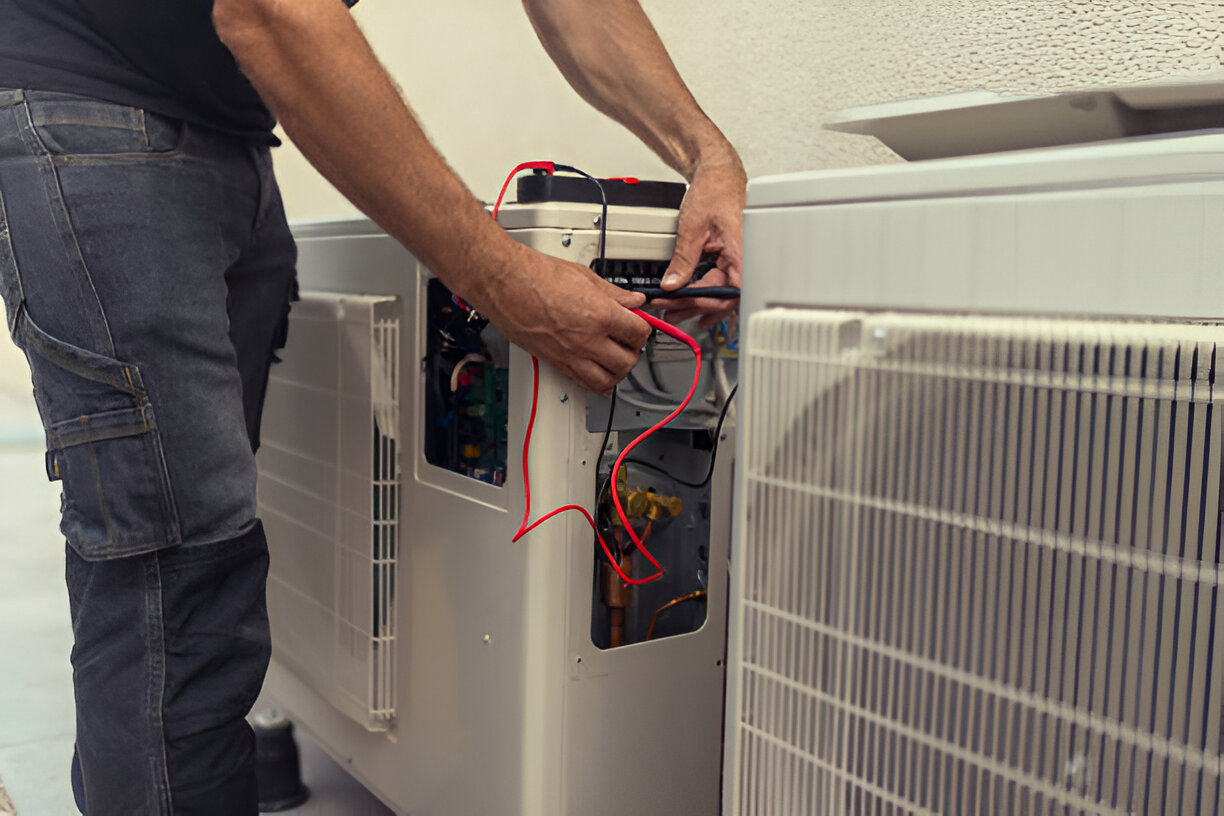

Heat Pump Installation in East Petersburg, PA
Upgrading to a heat pump delivers efficient, year‑round heating and cooling for East Petersburg homes that face humid summers and cold, damp winters. Professional heat pump installation in East Petersburg, PA ensures the system is sized, sited, and commissioned correctly so you gain maximum comfort, lower energy bills, and reliable performance through Lancaster County’s seasonal extremes.
Why a professional heat pump installation matters in East Petersburg
East Petersburg’s climate—hot, humid summers and chilly winters—makes a correctly installed heat pump especially valuable. A properly matched heat pump provides both cooling and efficient heating without the inefficiencies that result from poor sizing, undersized ductwork, or incorrect refrigerant charge. Local houses, many with older duct systems and mixed construction, require a tailored approach to get full system efficiency and comfort.
Common heat pump installation scenarios we see in East Petersburg
- Replacing an aging furnace/central AC with a high‑efficiency heat pump for combined heating and cooling.
- Installing ductless mini‑split systems in older homes or additions with limited ductwork.
- Converting oil or propane heated homes to all‑electric heat pump systems.
- Upgrading outdoor unit only (condensing unit) while retaining indoor components when compatible.
Typical problems that lead homeowners to choose replacement
- Frequent breakdowns or rapidly rising repair costs on aging HVAC equipment
- High winter electric or fuel costs compared to modern heat pump efficiencies
- Uneven heating or cooling tied to poor duct condition or incorrect system capacity
- Desire to electrify heating for environmental or long‑term cost reasons
What a professional installation includes
A thorough, code‑compliant heat pump installation covers these key stages:
1. Site assessment and load calculation
- Manual J sizing to calculate heating and cooling loads based on home layout, insulation, window area, and orientation.
- Evaluation of existing ductwork for leakage, sizing, and insulation.
- Electrical service review to confirm panel capacity and needed upgrades.
2. Equipment selection
- Choosing the right type: ducted air-source heat pump, cold‑climate heat pump, or ductless mini‑split(s).
- Matching capacity and efficiency: SEER/EER ratings for cooling and HSPF (or HSPF2) and COP for heating to balance performance and operating cost.
- Considering variable‑speed compressors and inverter technology for quieter operation and better part‑load efficiency.
3. Ductwork or mini‑split planning
- For ducted systems: duct sealing, balancing, insulation, and potential resizing to ensure proper airflow and static pressure.
- For ductless systems: zoning strategy, indoor head placement for comfort and aesthetics, and condensate management.
4. Electrical and refrigerant work
- Installing dedicated circuits, disconnects, and any required service panel upgrades to handle startup current safely.
- EPA‑compliant refrigerant handling: recovery, charge verification, and use of currently approved refrigerants.
- Proper line set installation and insulation to prevent heat loss and efficiency loss.
5. Installation steps and best practices
- Precise placement of outdoor unit on level pad with clearance for airflow and snow melt.
- Secure indoor equipment mounting with vibration isolation and proper condensate routing.
- Tight, leak‑free refrigerant connections and a vacuum pull before charging (when applicable).
- Thermostat or control integration and phased sequencing for multi‑zone systems.
6. System commissioning and testing
- Verifying refrigerant charge using superheat/subcooling or manufacturer procedures.
- Measuring airflow, verifying temperature split, and confirming electrical draw and voltages.
- Checking defrost operation, reversing valve function, and emergency heat staging.
- Ensuring controls and zoning operate correctly and that system meets calculated loads.
7. Permits and code compliance
- Securing necessary permits and scheduling required local inspections with Lancaster County or East Petersburg municipal authorities.
- Adhering to local building codes, ventilation standards, and electrical code requirements.
- Documentation of refrigerant work and disposal in accordance with federal and state regulations.
8. Post‑installation walkthrough and homeowner education
- Demonstrating thermostat settings, modes (heat, cool, auto), and how to use setback or scheduling features to maximize savings.
- Explaining filter types and replacement intervals, outdoor unit care, and recommended seasonal checks.
- Providing a simple maintenance checklist, warranty information, and explanation of when pro service is recommended.
Benefits specific to East Petersburg homeowners
- Improved comfort year‑round with a single, efficient system for heating and cooling.
- Lower operational costs compared with aging electric resistance or inefficient fossil systems when properly installed and commissioned.
- Better humidity control during Pennsylvania summers and stable indoor temperature in winter.
- Potential eligibility for local utility rebates or state incentives for heat pump installations when paired with qualified equipment and certified installers.
Longevity and maintenance tips
- Schedule annual or biannual professional maintenance to verify refrigerant charge, check electrical connections, and clean condenser coils.
- Replace or clean filters regularly and keep the outdoor unit clear of leaves, snow, and debris.
- Inspect ductwork every few years for leaks and re‑seal or insulate as needed to maintain efficiency.
- Use thermostat schedules and variable‑speed operation to reduce cycling and extend compressor life.


Enjoy flexible financing options that make upgrading or repairing your HVAC system easy and budget-friendly.









